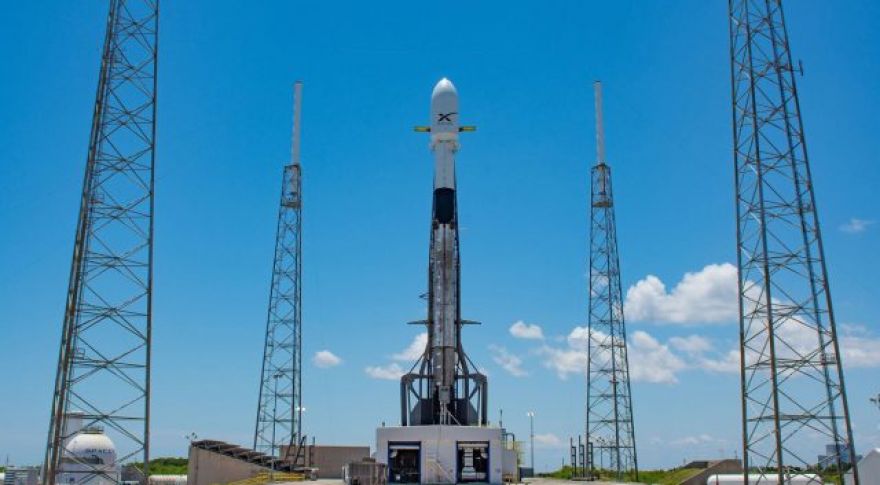
SpaceX Delays Starlink Launch Again to Update Satellite Software
SpaceX hoped to have 60 custom communication satellites in orbit today, but instead, it has zero. The private spaceflight company scrubbed the first attempted launch of its Starlink internet satellites on Wednesday this week, and now a second launch has been aborted. It’s not mother nature’s fault, though. SpaceX says the satellites need a software update.
Starlink is Elon Musk’s vision for the future of internet access. The system will eventually include more than 12,000 satellites in varying orbits. The goal is to get low-latency internet access to large swaths of the globe. More than 7,500 of those satellites will be in very-low-earth orbit (VLEO) to reduce latency on the ground.
The newly delayed launch was set to be the first full Starlink deployment, but there are already a pair of test satellites in orbit. In February, a Falcon 9 rocket carrying an Earth observation satellite also had two Starlink satellites as a secondary payload. SpaceX hasn’t talked about the performance of those satellites, but they’ve probably helped the company avoid software issues on its main deployment.
According to SpaceX, there’s another launch window for the Starlink mission in about a week. Including that tidbit in the delay announcement suggests that the company is aiming to have its satellites updated and ready by that time. Although, it could also take longer — we don’t know the nature of the software updates. The Falcon 9 has been prepped and waiting on the launchpad for several days, and the satellites are packed tightly inside the fairing. If engineers need physical access to the satellites, it could take a while to get them ready for launch.
First 60 Starlink satellites loaded into Falcon fairing. Tight fit.
— Elon Musk (@elonmusk)
SpaceX wants to have 420 satellites in orbit (7 launches of 60 satellites) before it flips the switch on Starlink. It will take another six launches before Starlink offers what Elon Musk calls “significant coverage.” Each one of these launches is an 18.5-ton payload, the largest ever for a Falcon 9.
It’s an expensive undertaking, so it makes sense SpaceX would want to “triple-check” the satellites before launching the first batch. The company will use this initial block to test the capabilities of its system. If they don’t work, SpaceX is back to the drawing board.
Now read: